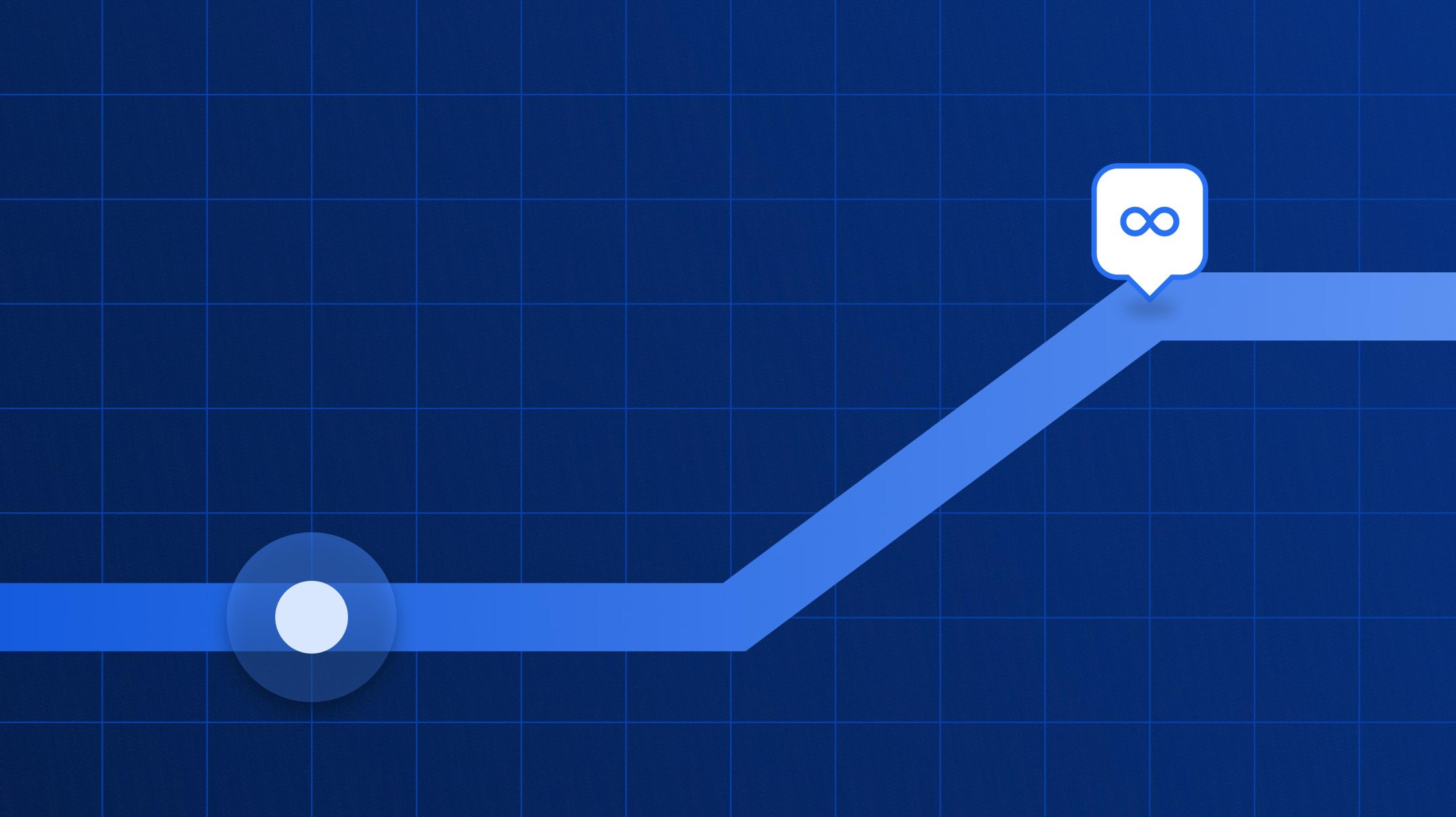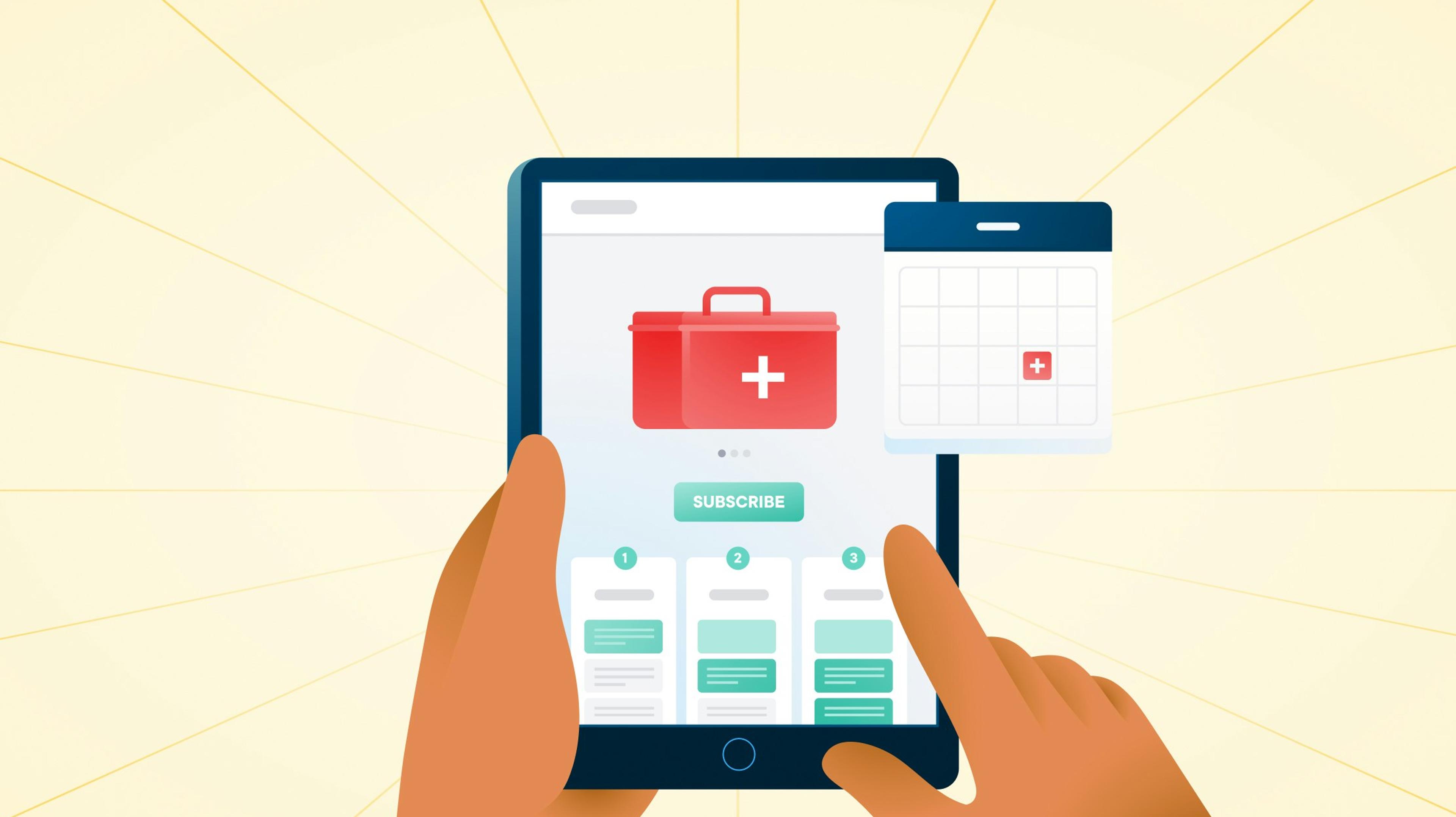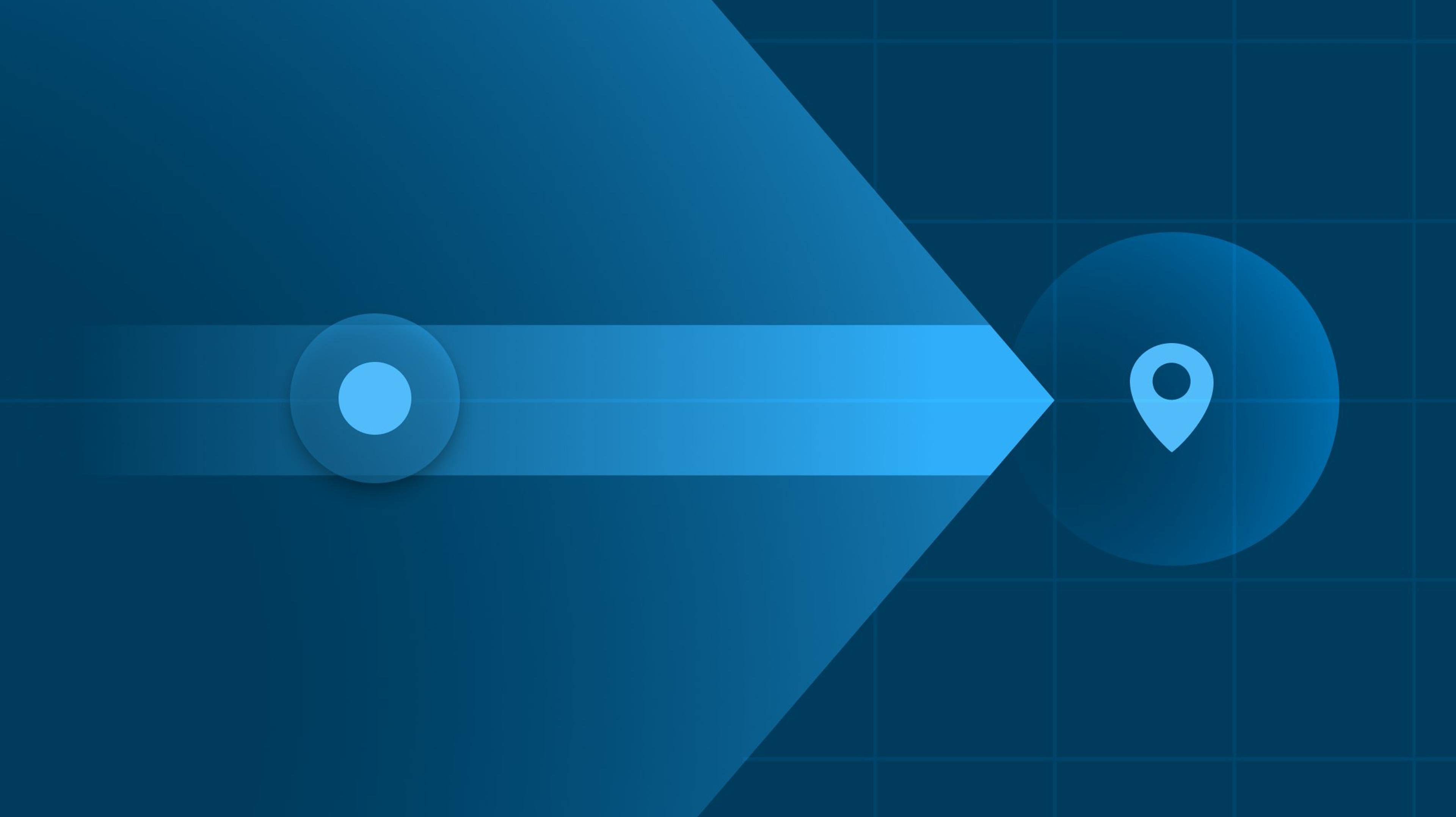21 Best Logistics Management Software for 2024: Reviews & Pricing

If you’re drowning in spreadsheets, struggling to keep deliveries on time, or constantly losing track of precious inventory, you might have a logistics management problem.
When we say “logistics management software” here, we’re essentially using an umbrella term to describe a suite of tools that enhance the entire order fulfillment process—from picking and packing right to the last-mile delivery.
From keeping your warehouse organized to optimizing delivery routes, there's a software category for every logistical nightmare. But here's the kicker: one size doesn't fit all. The right tool for a small ecommerce business might be overkill for a local courier service, or woefully inadequate for a global manufacturing giant.
Here, we break down the broad scope of logistics management software into bite-sized categories. We’ll explore the top tools for each use case, so whether you’re battling inventory chaos or trying to tame a fleet of delivery vehicles, we’ve got you covered.
What is logistics management software?
Logistics management software (LMS) essentially helps manage the flow of goods and services. It streamlines common logistics processes, including planning, implementing, and controlling the movement and storage of products from the point of origin to the end customer.
The term logistics management software is often used as an umbrella term for any providers that help businesses, 3PLs, logistics companies, and courier services manage their operations, from route optimization and route planning to inventory, order, and transportation management.
Most logistics management software focuses on one or more of these activities:
- Tracking orders and delivering updates to customers
- Monitoring stock levels
- Planning and optimizing delivery routes
- Organizing product storage and warehousing
What to look for in logistics management software
What’s important for you ultimately depends on your business and how you plan to use the software. As a general rule, here are the key things to look out for in each type of LMS.
Delivery management software
- Real-time tracking for estimated delivery times
- Route optimization for better route planning
- Dynamic notifications to keep customers in the loop
Transportation management software
- Route planning to ensure timely deliveries
- Carrier management to find the best shipping options
- Freight auditing and payments to reduce admin work
Inventory management software
- Stock level monitoring to prevent overstocking and stockouts
- Demand forecasting to predict future inventory needs
- Order management to update stock levels when orders are placed
Warehouse management systems
- Storage optimization to maximize warehouse capacity
- Inventory tracking to ensure accurate stock levels
- Automated picking and packing to speed up fulfillment
Order management systems
- Order processing to reduce manual errors
- Customer communication to keep customers informed
- Returns management to simplify the returns process
Fleet management software
- Vehicle tracking to monitor the location and status of vehicles in real-time
- Maintenance scheduling to ensure vehicles are serviced regularly
- Driver management to track performance and compliance
Enterprise resource planning software
- Easy integration with your existing tech stack
- Centralized data from different departments for a unified view
- Scalability to support the growth of your business
The 21 best logistics management software in 2024
Category #1: Delivery management software
Delivery management software addresses key challenges in the final stage of the supply chain—the last-mile delivery. This type of software helps businesses reduce failed deliveries, improve efficiency in last-mile operations, increase profitability, and improve the customer experience with on-time deliveries.
When choosing a delivery management software, look for real-time tracking, route optimization, proof of delivery features, and detailed analytics and reporting.
Here’s our pick of the best.
1. Circuit for Teams

We’re biased here, but Circuit for Teams really does have everything you need from delivery management software. It includes powerful route optimization, live driver tracking, and flexible proof of delivery options. Plus, the software includes a synced dispatcher dashboard and driver app, making it easy to plan routes, handle last-minute changes, and keep customers updated in real time.
What customers are saying:
“Circuit has been mind-blowing for our company and is letting us know just how far behind the times we were in the implementation of our delivery service. It is something we are going to continue to expand in our company, as well as, being the first program I mention to other people dealing with the same difficulties in our field.”
CFT pricing
For just $100 a month, you can optimize up to 500 stops, capture proof of delivery, and send dynamic customer notifications.
2. Onfleet

Onfleet offers all the usual suspects when it comes to last-mile delivery, including route optimization, proof of delivery features, and real-time tracking. While it’s praised for its functionality, the price is considerably higher than Circuit for Teams. With plans starting at $550 per month, the steep price might put it out of the running for smaller businesses.
What customers are saying:
“Easy to use. Helps manage where my fleet is at. Gives me up-to-the-minute updates. I also like the way our customer/s can track the progress of our truck to their job site. Easy to add or delete tasks. Or add or remove users.”Price: For $550 a month, you get 2,000 delivery or pickup tasks, unlimited users, route optimization, proof of delivery, 90-day analytics, and triggered customer notifications.
3. Routific

Routific offers intelligent route optimization, taking into account human factors and traffic patterns. Like Circuit for Teams and Onfleet, it provides live tracking, customer notifications, and proof of delivery features. The software allows for priority stop management, route monitoring, and automatic rescheduling of skipped stops—useful if you have routes that regularly change.
What customers are saying:
“Automating the process has made a massive improvement in my business - tedious manual management of routing is long a thing of the past.”Price: Pay $49 per vehicle per month on the Essential plan and get intelligent route optimization and a driver mobile app.
Category #2: Transportation management software
Transport management software focuses on moving goods efficiently and cost-effectively. It helps businesses optimize routes, reduce shipping costs, and improve delivery times. If you want to tackle common issues like inefficient route planning, lack of real-time visibility, and poor communication with carriers and customers, transportation management software might just be the solution.
1. Oracle Transportation Management (OTM)
OTM has all the bells and whistles you need to manage your operations. While it’s part of the wider Oracle ecosystem, the transportation management element is a standalone product. It handles pretty much every part of transportation, from planning routes to settling payments. But the biggest bonus is its global trade integration, which manages international shipping and trade compliance.
What customers are saying:
“This tool is a complete planning engine that helps to plan your vehicle from booking area to destination area with its size, and load with complete capacity management. In summary, this is a good product but users should have complete use cases as this is an expensive product.”Price: OTM is pricey. At its most basic level, it’s $600 a month—more, if you want to add additional logistics services.
2. SAP Transportation Management
SAP TM tackles the big headaches in transport logistics. It acts as an all-in-one solution for moving stuff from A to B more efficiently. As well as route planning and time tracking features, SAP TM is great at managing freight costs and shipping expenses. But it comes at a price. This tool is definitely reserved for big companies with sizeable budgets.
What customers are saying:
“This software is made for companies that manage big warehouses and moves of materials and products around the world, it helps for releasing the orders, also has many functionalities and security hierarchy.”Price: SAP TM is not cheap. Average plans come in at $800,000+ and can take up to a year to implement.
3. Blue Yonder
Blue Yonder’s transportation management software was built for companies dealing with complex supply chains. The real-time tracking and automated carrier selection streamline the entire delivery process (regardless of whether you’re delivering locally or globally), and it also manages all shipment paperwork. It’s part of Blue Yonder’s full tech suite, which covers everything from logistics and sales to planning and workforce management.
What customers are saying:
“The implementation time is short and uncomplicated. It is easy to integrate with the Blue Yonder WMS module, however, for other systems you will need to develop integration.”Price: Contact Blue Yonder for bespoke pricing information.
Category #3: Inventory management software
Inventory management software provides real-time visibility into stock levels across multiple locations, preventing stockouts and overstocking. This software typically automates reordering processes, optimizes inventory levels, and improves order fulfillment accuracy.
1. Zoho Inventory
Zoho Inventory was designed for growing businesses. It offers real-time stock tracking across multiple warehouses, automated reorder notifications, and seamless integration with popular sales channels. Key features like barcode scanning and customizable access controls help optimize stock levels, reduce costs, and improve overall operational efficiency.
What customers are saying:
“I can say that Zoho Inventory has helped reduce inventory management errors and have a clearer view of how sales are performing”.Pricing: For $30 a month, you get up to 500 orders, and two users, and can connect to one warehouse.
2. Cin7
Cin7 crams a lot of features into its system. As well as stock tracking features, automated purchasing, and warehouse management tools, you can pair it with multiple online stores and shipping software to bridge the gap between the origin point and end destination. Perhaps most useful, you can sync stock levels across your warehouses and track specific parts for bundled goods.
What customers are saying:
“CIN7 was easy to implement into our Techstack, When placing orders on CIN7 it was made with ease. But CIN7 only works with small to mid-level businesses. If your company continues to grow, You will grow out of CIN7.”Pricing: The Standard plan is $349 a month. For this price, you get two ecommerce integrations and up to five users.
3. inFlow Inventory
InFlow Inventory is a user-friendly inventory management software designed for small to medium-sized businesses. It offers real-time stock tracking across multiple locations, automated reordering based on customizable low-stock thresholds, and seamless integration with various ecommerce platforms.
What customers are saying:
“I found the program to be user-friendly. I have multiple ways of tracking my inventory. I like that it is cloud based and I am not stuck to one computer to use the program.”Pricing: The Entrepreneur plan starts at $89 per month for two users. For small businesses, plans start at $219 a month.
Category #4: Warehouse management systems
Warehouse management software gives you real-time visibility into inventory levels, optimizes space utilization, and streamlines order fulfillment processes. Automating tasks like receiving, put-away, and picking significantly improves operational efficiency and reduces those pesky (and wholly avoidable) human errors.
1. Manhattan Associates WMS
Manhattan Associates is an advanced warehouse and supply chain management (SCM) software with a heavy focus on the retail and distribution sectors. As it’s built on the .NET platform, it integrates easily with SAP, Microsoft 365, and other ERP systems.
What customers are saying:
“It's been a great tool to learn warehouse management on, using it to learn all the different aspects of warehouse logistics, such as inbound receiving, sorting stocking to outbound picking, packing, and manifesting as well as the inventory control aspects.”Pricing: Contact Manhattan Associates for pricing. It looks like plans start at $2,000 per user, per year.
2. NetSuite Cloud ERP
NetSuite Cloud ERP is primarily an all-in-one ERP tool but it’s particularly good at warehouse management. Its real-time inventory visibility, automated receiving and putaway processes, and mobile RF barcode scanning make sure your team is picking and packing the right orders and getting them out the door quickly.
What customers are saying:
“NetSuite was an easy-to-use platform, I have used it in a variety of companies. Makes it easy to manage your revenue and receivables and also be able to share information with cross teams easily allowing the flow to transfer information easier.”Pricing: Head over to the NetSuite website and fill out the request form for a bespoke price
3. Fishbowl
Fishbowl is unique because it’s predominantly geared toward small to mid-sized businesses. It offers real-time inventory tracking, automated reordering, and multi-location management. For companies that are just getting started, barcode scanning, order management, and detailed reporting are useful for decision-making, identifying opportunities, and streamlining fulfillment.
What customers are saying:
“User friendly and detailed. Lots of options and the ability to add different tools as needed, plugins. Customer service has stayed above the bar throughout.”Pricing: Fishbowl offers custom pricing based on your business needs.
Category #5: Order management systems
Order management systems streamline the entire order process—right from the initial purchase through to final delivery—by centralizing and automating the various aspects of order handling. Look for tools with real-time inventory tracking, multi-channel order processing, and integrated shipping management.
1. Brightpearl
Built with large-scale retailers in mind, Brightpearl is particularly good at automating complex order workflows, juggling inventory across multiple locations, and collating detailed financial reports for multi-channel retailers.
What customers are saying:
“We now have a product that solves our needs. It is simple to use, yet complex so that we can grow a lot within it. It was quick to implement, allowing us to benefit from the elevated toolbox immediately.”Pricing: Brightpearl offers custom pricing.
2. Shopify
Shopify is a popular ecommerce platform for small to medium-sized businesses. Built-in order management features help you fulfill orders as and when they come in. But Shopify’s biggest selling point is its integration with various apps and sales channels which essentially let you customize your processes down to the last detail.
What customers are saying:
“Shopify offers the possibility to implement ideas directly. Thanks to the modular system, stores can be set up literally within minutes. The existing payment module can be set up, and apps can be installed for analysis, marketing, and aesthetics.”Pricing: For $25 a month, you can get 10 inventory locations and localized global selling to three markets. For additional staff accounts you have to bump up to the next plan, which starts at $60 a month.
3. Katana
Katana is a manufacturing-focused ERP system that has a suite of order management features. It’s particularly well-suited to businesses that straddle the line between manufacturing and sales operations thanks to its end-to-end visibility of the production and order fulfillment process.
What customers are saying:
“I love the value. We were stuck using excel to manage our inventory for a long time because there were no affordable options until Katana came along. I am able to maintain accurate stock levels much more easily now.”Pricing: The Starter package is $179 a month for one inventory location and up to 1,200 sales orders per year.
Category #6: Fleet management software
If you run a business that operates a fleet of vehicles, fleet management software can help track, monitor, and optimize your operations. These systems work by integrating GPS technology, telematics, and advanced software to give you real-time visibility into where your vehicles are at any given moment in time, driver behavior, fuel consumption, and any maintenance needs.
1. Samsara
Samsara is a cloud-based platform that offers real-time GPS tracking, vehicle diagnostics, and driver safety monitoring. You can optimize routes and improve fuel efficiency as well as get insider intel into driver behavior as well as a big-picture view of your overall fleet performance.
What customers are saying:
“Samsara allows me to accurately track and monitor my fleet of vehicles. Safety inspections allow tracking of vehicle service and maintenance. Also, the app allows drivers to login lunch breaks. This app has everything you need to monitor drivers and vehicles.”Pricing: Samara offers bespoke pricing based on how big your fleet is and what vehicles you use.
2. Verizon Connect
Verizon Connect shows you where your vehicles are, how they’re being driven, and when they need fixing. This helps you save money on gas, avoid breakdowns, and make sure drivers are safe. It also handles paperwork and helps you plan better routes for optimal delivery services.
What customers are saying:
“I love the security of knowing where my drivers are, how long they've been driving, and knowing that our vehicles are secure as well.”
Pricing: Verizon Connect prices plans based on fleet size and vehicle type.
3. Geotab
Geotab is known for its open platform and extensive marketplace of third-party add-ons. It provides detailed metrics and is particularly strong in electric vehicle fleet management.
What customers are saying:
“The features on the dashboard are similar to what other competitors offer, but the layout is much more user friendly. The drop-downs are more organized and the navigation to different fields is smooth. I also liked the very near to real time updates to the gps locations and the ability to pull data from the vehicle's ECM such as CEL, hours, and seat belt status.”
Pricing: Geotab doesn’t share it’s prices publicly, but there are four payment tiers: Base, EU Regulatory, Pro, and ProPlus
Category #7: Enterprise resource planning software
ERP systems connect up different parts of your business, like keeping track of stock, managing money, and dealing with customers. If you’re in charge of logistics, ERP systems show you what’s happening right now with inventory, orders, and shipping—plus, they give you a handy insight into what might happen in the future.
1. SAP ERP
As part of the wider SAP ecosystem, the ERP software offers real-time data processing, extensive customization options, and seamless integration with other SAP modules. It’s particularly good at juggling large-scale operations and optimizing chunky, complex supply chains.
What customers are saying:
“Business One supports tons of automated workflow creation options that were very helpful for us across different departments. With these, we were able to make a lot of our inventory check, invoicing, logistics, and auditing processes almost completely automatic. They saved us a lot of working hours and reduced the chances of human error.”Pricing: SAP ERP offers bespoke pricing. It looks like packages start from about $10,000 a year.
2. Oracle ERP Cloud
Oracle ERP Cloud is another offshoot of the wider Oracle tech suite. It’s a cloud-based solution with powerful AI-driven insights. Its toolbox includes strong financial management features, advanced procurement features, and built-in analytics to help you scale.
What customers are saying:
“This software works incredibly well for large, global organizations—or with organizations that have sophisticated supply chain requirements. The nice thing about ERP Fusion is that when you buy this solution you will not need to buy additional financial software—you should have everything you need in one purchase.”Pricing: Oracle ERP creates bespoke packages based on your needs.
3. Microsoft Dynamics 365
Microsoft Dynamics 365 offers a familiar interface that integrates perfectly with other Microsoft products—great if you’ve been using something like Excel to track inventory. As well as solid CRM capabilities, it also has intuitive intelligence tools and flexible ways to implement it to suit your business. You can plug together other Microsoft logistics tools, including its supply chain management element and customer support tool.
What customers are saying:
“Dynamics 365 is a great tool, in-fact one of the best tool I’ve used for Customer Relation Management. The best part is its case system or external and internal cases and its integration to outlook emails.”Pricing: Microsoft Dynamics’ pricing depends on which modules you add to your toolbox. Most are around $70 a month.
Logistics management software: FAQs
What are the different types of logistics management software?
The term logistics management software is often used as an umbrella term to describe tools that enhance supply chain operations. We’re talking about things like warehouse management systems, transportation management systems, delivery management software, and fleet management systems.
How do I choose the right logistics management software for my business?
The right logistics management software totally depends on your needs. Start by figuring out your use cases, what tools you need to integrate it with, and your budget. Make sure the software aligns with your business goals and can handle your logistics processes efficiently.
How does logistics management software benefit my business?
Logistics management software benefits your business by optimizing route planning, reducing transportation costs, improving delivery timelines, enhancing inventory accuracy, and providing real-time visibility into logistics operations, ultimately increasing efficiency and customer satisfaction.
What type of companies should invest in logistics management software?
Companies involved in retail, manufacturing, transportation, freight forwarding, and third-party logistics should invest in logistics service providers to streamline their operations and remain competitive.
Can logistics management software integrate with my existing systems?
Yes, most logistics solutions are designed to integrate seamlessly with existing systems, such as ERP, CRM, and accounting software. This enables data to flow smoothly between platforms.
What is the difference between a TMS and a WMS?
A transportation management system (TMS) focuses on optimizing transportation and logistics processes, including route planning and carrier selection, while a warehouse management system (WMS) manages warehouse operations, such as inventory tracking and order fulfillment.
Do I need both an inventory management system and an order management system?
Yes, having both an inventory management system and an order management system is beneficial as they serve different purposes: inventory management tracks stock levels and locations, while order management handles the processing and fulfillment of customer orders.
What is an ERP system, and how does it relate to logistics management?
An ERP (enterprise resource planning) system is an all-in-one software platform that brings together various business processes—including logistics management—to provide real-time data and streamline operations across your organization.
What are the costs associated with implementing logistics management software?
The costs associated with implementing logistics management software can vary widely depending on the software's complexity, customization needs, number of users, and integration requirements.





